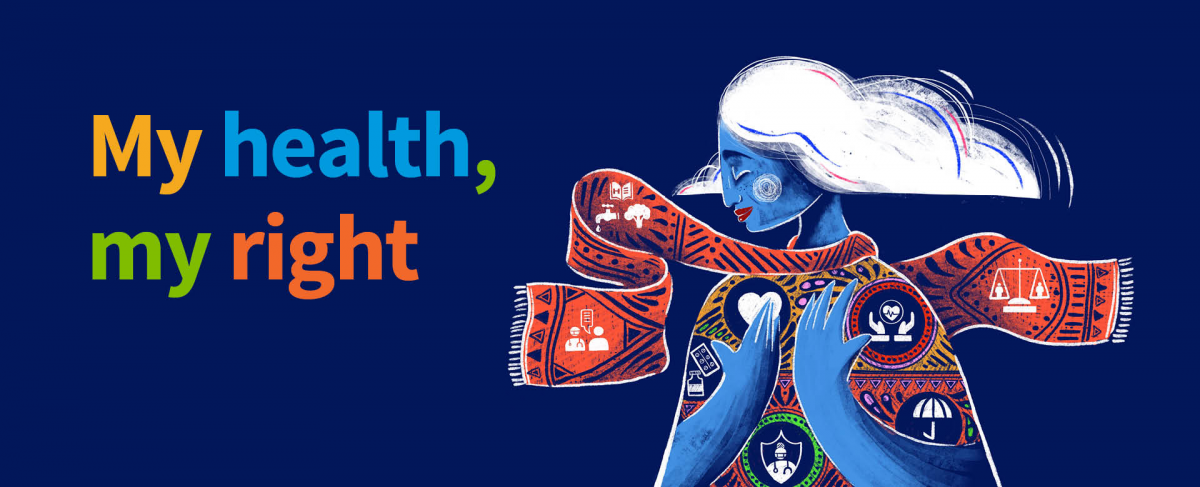World Health Day 2024: "My health, my right" - WHO's call for health autonomy [1]
Around the world, the right to health of millions is increasingly coming under threat.
Diseases and disasters loom large as causes of death and disability.
Conflicts are devastating lives, causing death, pain, hunger and psychological distress.
The burning of fossil fuels is simultaneously driving the climate crisis and taking away our right to breathe clean air, with indoor and outdoor air pollution claiming a life every 5 seconds.
The WHO Council on the Economics of Health for All has found that at least 140 countries recognize health as a human right in their constitution. Yet countries are not passing and putting into practice laws to ensure their populations are entitled to access health services. This underpins the fact that at least 4.5 billion people — more than half of the world’s population — were not fully covered by essential health services in 2021.
To address these types of challenges, the theme for World Health Day 2024 is 'My health, my right’.
This year’s theme was chosen to champion the right of everyone, everywhere to have access to quality health services, education, and information, as well as safe drinking water, clean air, good nutrition, quality housing, decent working and environmental conditions, and freedom from discrimination.

World Health Day: PAHO reaffirms its commitment to the right to health for all people
For World Health Day, celebrated on April 7, the Pan American Health Organization (PAHO) reiterated its commitment to the right to health for all people, without discrimination of any kind.
"At PAHO, we strive to fulfill this right to health by working with our Member States to advance universal health for all, including for those populations living in situations of vulnerability,” PAHO Director, Dr. Jarbas Barbosa, said.
The theme of this year's World Health Day is "My health, my right,"and seeks to promote the right of all people, everywhere, to access to quality health services, education and information, as well as to safe drinking water and sanitation, clean air, good nutrition, quality housing, decent environmental and working conditions, adequate social protection and freedom from discrimination, among others.
In 1948, the World Health Organization (WHO) recognized health as a human right in its Constitution. However, in the Americas, almost 30% of the population has unmet health care needs, a situation that is exacerbated in low-income countries and in the most impoverished and vulnerable communities.
To ensure the right to health, Dr. Barbosa stressed the importance of addressing the historical inequalities that prevent many from exercising this right, which were exacerbated by the COVID-19 pandemic. "Socioeconomic conditions such as poverty and limited access to basic services expose people to a higher risk of disease,” he said. “Financial, geographic and cultural barriers also hinder access to care for some populations.”
PAHO recommends transforming health systems based on primary health care (PHC), a model centered on people and communities, which focuses on health, not disease. It also calls for addressing the social and environmental determinants that condition the health, well-being and health equity of individuals and communities through intersectoral action.
Other recommendations to ensure equitable access to services include
increasing investment in health to at least 6% of GDP, investing 30% of these resources in the first level of care, and eliminating direct payments at the point of care
The PAHO Director emphasized that the Organization continues to make progress in the implementation of its initiative to eliminate more than 30 infectious diseases and to promote actions against non-communicable diseases, such as cancer and diabetes. He also emphasized PAHO's work to strengthen the region's health services by introducing innovations and technologies to enable them to respond more effectively and equitably to health threats.
“Health and well-being are central aspects of living a full life and should not be regarded as a privilege, but rather viewed as the foundation from which society develops, grows, and prospers,” the PAHO Director said.







